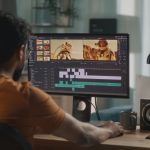Introduction
I am Nicholas Vyner Todd. I am a Consultant Neurosurgeon and Spinal Surgeon. I retired from the NHS in 2011 and from private practice in 2014. I continue to work in academic neurosurgery in personal injury and medical negligence litigation as an expert witness.
My undergraduate training was at Guys Hospital. My postgraduate training in neurosurgery was at neurosurgical units in Derby, London, Edinburgh and Glasgow. I was awarded the FRCS (England) in 1982. In 1983 I became a Medical Research Council Special Training Fellow in Neurosurgery. I undertook research in experimental brain injury at the Institute of Neurology Queen Square between 1983 and 1984. This led to the award of an MD by the University of London and also led to my appointment as a Hunterian Professor RCS Eng in 1985. I subsequently studied for a diploma in law and was awarded the PgDL (University of Northumbria) in 2001. In In 2010 I was awarded an Honorary Fellowship of the Royal College of Physicians of Edinburgh. My qualifications are MB BS, FRCS, MD, PgDL, FRCPE.
Medicolegal beginnings
My introduction to significant medicolegal work was abrupt and somewhat spectacular. In 1995, I was asked to act as an expert witness on behalf of an Orthopaedic Surgeon who was suing the Daily Mirror for defamation. Mr Percy was a Consultant Orthopaedic Surgeon at the Queen Mary’s Hospital, Sidcup. Mr Percy was responsible for the primary triage of head injury patients. A 45-year-old man had been deliberately run-down by a car. Mr Percy’s registrar had neurosurgical training and managed the patient superbly well; intubation, ventilation and a CT scan were performed, a large acute subdural haematoma (ASDH) compressed the brain. Mannitol was given. The local neurosurgery unit could not accept the patient because they had no intensive care (ITU) beds. Mr Percy was contacted at home and he advised the registrar, sequentially, to contact all of the neurosurgery units in London and then most of England; all refused to accept the patient because of a lack of ITU beds until finally he was accepted by the neurosurgeons in Leeds. He was flown to Leeds, the haematoma was evacuated but unfortunately the patient died. On 29.03.95 the Daily Mirror published a photograph of Mr Percy under the heading “Dr Dolittle” an article that accused him of gross dereliction of duty because he had not gone into the hospital to manage the patient. I emphasised that the patient had been managed perfectly up to the point where he needed a craniotomy to evacuate the haematoma, surgery that Mr Percy was not trained to perform and could not have performed.
I prepared a medicolegal report and the case was tried at the High Court in London. The Daily Mirror was represented by George Karman QC who was a famous defamation lawyer of that time. I was cross-examined extensively over a period of 2 days. The jury found that Mr Percy had been defamed and he was awarded £625,000 (which was halved on appeal). This was a dramatic introduction to high-level medicolegal work, which stimulated my interest in the subject.
I began to take on increasingly complex cases in both personal injury and clinical negligence. Later I studied for a postgraduate diploma in law, awarded in 2001 (University of Northumbria 2.1). I have subsequently published a number of papers on many medicolegal topics. I have provided reports for many Courts including the County Court, the High Court, Coroners’ Courts and on one occasional the Criminal Court of Appeal. I have been instructed in many jurisdictions including England, Wales, Scotland, Ireland, Gibraltar, Malta, Singapore, Hong Kong, Australia and the USA. I am instructed by solicitors acting for both Claimants and Defendants. I am often recommended by Counsel to prepare reports in my areas of particular expertise. I do not act for litigants in person.
A typical day
I spend part of my time in academic practice. I undertake original research mainly in the area of spinal surgery and I publish 3 or 4 academic papers per year; typically these are papers on the standard of care and outcome in spinal surgical practice. I have research collaborations with several academic departments of spinal surgery in the UK. I act as a referee for a number of international journals reviewing papers that are submitted for publication. My medicolegal practice is based in a cottage that overlooks the North Sea. The practice is wholly electronic. I and my secretaries are linked by a network and we all work from home.
My days are very varied. I can be working upon a medicolegal report, reviewing the medical records, witness statements, radiological imaging and reports from other experts then putting together my report. For personal injury and some of the clinical negligence cases patients need to be seen and examined to prepare a condition and prognosis report or to determine causation.
Patients can be seen at my local private hospital or at their home or another institution nationally, or patients can be seen remotely via a video consultation. Video consultations are convenient and cheap but the patient cannot be examined which in neurosurgery can be a significant disadvantage. There are regular consultations with solicitors and counsel often via video-link. One advantage of my current practice is that reports can be prepared very urgently and patients can be seen throughout the UK and any conferences or questions can be addressed as soon as is required.
Medicolegal work
I have dealt with many types of personal injury and clinical negligent cases and/or longstanding produced many thousands of reports. I used to provide reports for any area of neurosurgery that I encountered in clinical practice. I now only accept instructions upon cases where I have an ongoing academic or longstanding clinical interest. This includes all cases of head and spinal trauma and almost all spinal cases including spinal epidural haematoma, spinal infection, spinal epidural abscess, spinal cancer and the cauda equina syndrome (a serious medical condition that occurs when the bundle of nerves at the lower end of the spinal cord (called the cauda equina) is compressed) . There were areas where I had extensive clinical and academic experience such as for example paediatric neurosurgery but since leaving the NHS I am no longer active and I no longer accept such cases.
In all brain and spinal cases the starting point is to identify the nature and site of the pathological process. From that I determine whether a patient was appropriately referred, a adequate history taken and clinical examination performed.
This determines the timing and nature of investigations, including imaging. The causation of injury is determined in PI cases. In CN cases I identify whether there was any breach(es) of duty of care and whether any breach caused or contributed to the final outcome. It is often the case that the final outcome is a consequence of a non-negligent complication with necessary surgery; complications of neurosurgery and spinal surgery are in fact relatively uncommon but when they occur the effects can be devastating.
Duties to the Court
The Civil Procedure Rules (CPR) and the practice directions set out the duties of an expert which all medicolegal experts should read and understand. The most fundamental duty is that the expert acts for the Court not for the party that instructs or pays the expert. Experts are required because the Courts generally do not have the expertise to understand, for example, how a neurosurgical procedure is decided upon and carried out. The expert provides that knowledge for the Court and must do so independently. A not uncommon tactic for Defendant Counsel when starting cross-examination is to ask the Claimant’s experts if they understand their duties of care to the Court. If asked the expert will be expected to go through their duties of care to the Court; all experts must be prepared for such a question.
All experts must be familiar with the well-established tests for duty of care and causation. A doctor’s decisions must be reasonable and responsible (Bolam) and logical (Bolitho). In a memorable case (Thimmaya) a spinal injuries expert criticised a surgical procedure but he was wholly unable to explain the basis of his criticism of the surgical procedure based upon the Bolam and Bolitho principles. The Claimant’s case dismissed and the doctor had to pay wasted costs.
For causation, we apply 2 principles: the balance of probability test (the breach was more likely than not to have caused the harm [Wilsher]) or that it materially contributed to the harm (Bailey). The independence of experts cannot be over-emphasised. A GP (Liverpool v Zafar) provided a PI report. Then, on the instruction of his instructing solicitor acting for the Claimant, he rewrote the report exaggerating the disabilities. Mistakenly both reports were disclosed to the Defendant, both were in front of the Court. Dr Zafar was given a suspended jail sentence. Never provide reports that are favourable to the one party; this leads to disaster.
When preparing a medicolegal report for the Court particularly in negligence points made should be supported by the medical literature; Judges want to see your authorities. For negligence reports I usually perform a literature search to remind myself of key papers and to ensure I have not missed an important paper. This is time-consuming but essential. A High Court Judge once told me that the level at which a report should be pitched is that of an intelligent 14-year-old. Judges will not be familiar with the technical jargon and it is important that technical terms are explained within the text and/or with the use of a glossary.
Cross-examination
Cross-examination is a stressful experience. Experts will be cross-examined on the science, but commonly, there is an ad hominem attack upon the expert. The cross-examining Counsel has the road map. The expert cannot write down the questions and responses, they have to remember the response previously given. Counsel can ask you the same or a very similar question at different points in time to see if you give a different response. In cross-examination closed questions, to be answered yes or no, are typical.
If you feel a yes or no answer does not adequately deal with the issue say so. If Counsel does not ask you to elaborate the Judge might and if not your Counsel certainly will in re-examination. So, raise the point and leave the Court to pick it up as and when it wishes. Unless it is absolutely fundamental to the case avoid have a “bright idea” in the middle of cross-examination.
Judges wish experts to offer and explain their opinions in writing as part of a primary or subsequent report and/or in a joint expert report. Introducing a new concept in the middle of cross-examination will rarely be welcome. The key to all of this is preparation. You must read and re-read everything that has been disclosed to the Court on your behalf and, hopefully, all of the reports and joint reports of the other experts. You should respond to questions in a careful and thorough way looking in the general direction of the Judge but not staring at the Judge which many Judges find distracting.
Special interests
I have a particular interest in the cauda equina syndrome. I have more scientific publications on the subject of CES than any other author in the world and I am recognised as an international authority on this subject. I have published on the standard of care, clinical assessment, imaging, and so many investigations, management and outcome in CES and I have audited medicolegal CES cases. I also have a particular interest in spinal injury. I was the lead neurosurgeon to NICE trauma guidelines, including guidelines for the management of acute spinal injury, which was published in 2016. I have several academic publications in respect of spinal injury, including a review of secondary neurological deterioration in medicolegal spinal injury cases (the commonest cause is failure to immobilise the spine). I have a specialist interest in spinal infection and spinal epidural abscess and again I have a number of publications in that area.
Interesting cases
Many of my cases have been memorable. What interests me most are areas of medicolegal practice that are evolving. In the cauda equina syndrome current controversies include failure of widely used subclassifications of CES to determine management and outcome. They include the diagnosis of severe CES at a time when patients have bladder ultrasound and catheterisation prior to urinary incontinence (a marker of severe CES) and whether CES causes a greater severity and frequency of back pain (in my opinion it does); I have the original research to support that but this is highly controversial. In spinal injury the key questions are the cause of secondary neurological deterioration after the primary injury and whether any secondary injury is reversible (due to the matter of fact). The key issue in the case of spinal infection is making an early diagnosis where outcomes are typically good if not excellent; A delayed diagnosis is often associated with severe neurological impairment up to paraplegia.
The essential elements of a good report
At an early stage set out why you are an appropriate expert for this case, in a mini-CV. A Judge has neither the time nor the interest to trawl through a full CV to try to pull out your expertise. The facts of the case should be set out in detail, emphasising any conflicts in the evidence (which are common). Start with a summary so that the Judge can see what the issues in the case are.
You will have to assume some facts as correct but state that you recognise that evidence is a matter for the Court, to whom you defer.
The Court may have no knowledge of specialist terms, either use footnotes to explain them or provide a chronology, or both; make life easy for the Judge. Set out the tests you apply; “the reasonable and responsible neurosurgeon will…” or “on balance the outcome with surgery would…”. CPR insists that if there is a range of opinion it must be stated, say where your opinion lies within the range and why. Above all demonstrate impartiality, be measured and explain your reasoning with reference to the medical literature.
Other interests
I was previously an offshore yachtsman and a pilot (power). I am currently training as a glider pilot.
Professor Nicholas Vyner Todd
Consultant Neurosurgeon & Spinal Surgeon
mrnvtodd@nicktoddoffice.co.uk
www.nicktoddweb.co.uk
Published by: www.lawyer-monthly.com - June 4th, 2024








